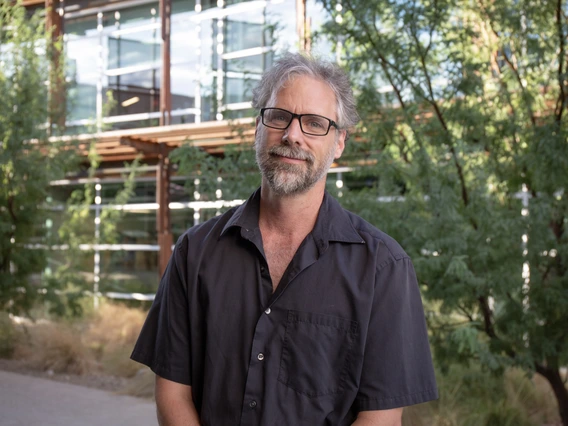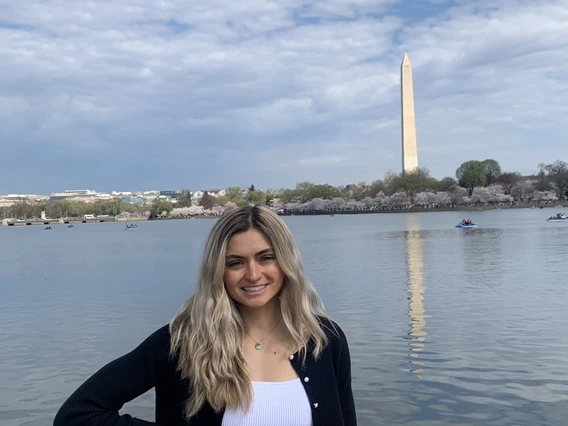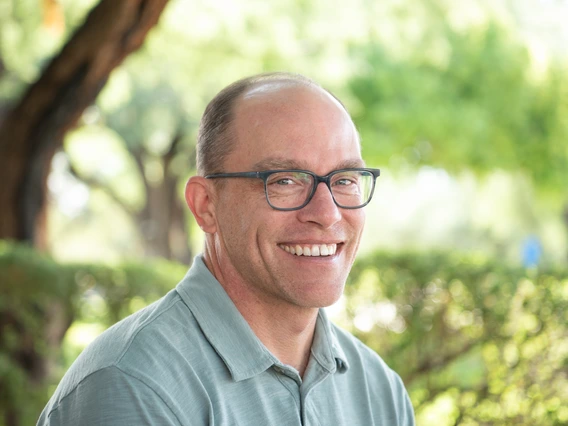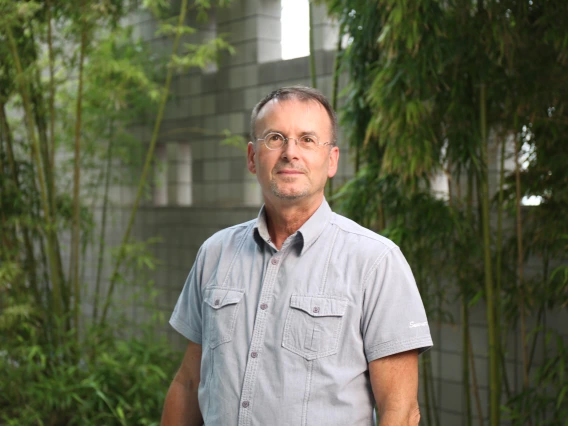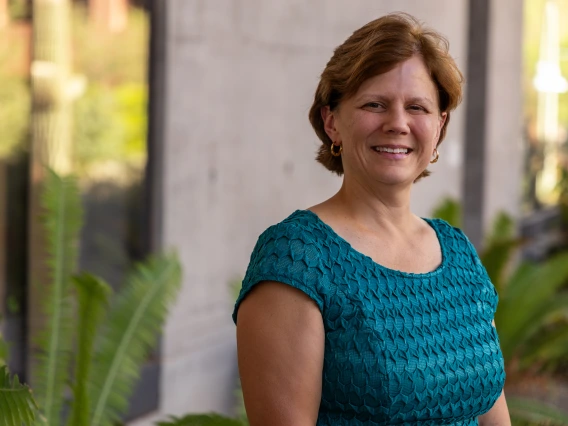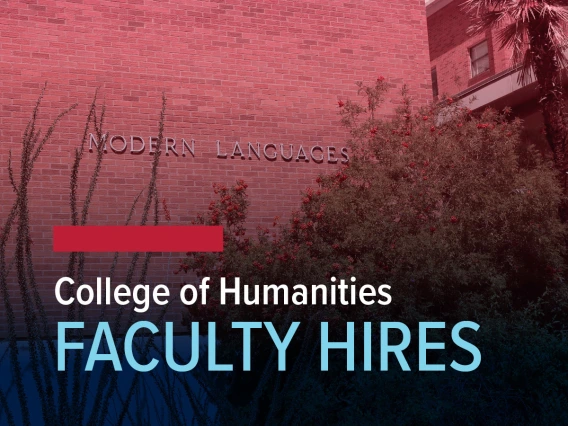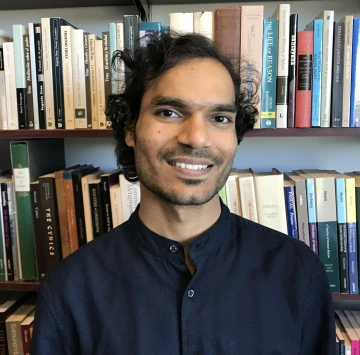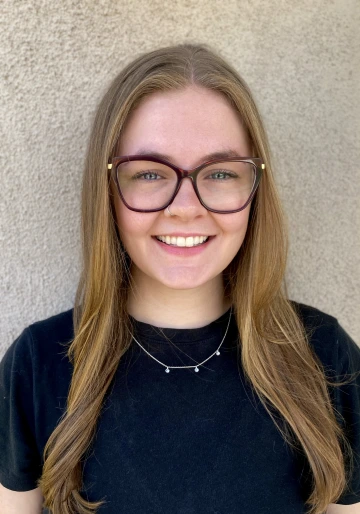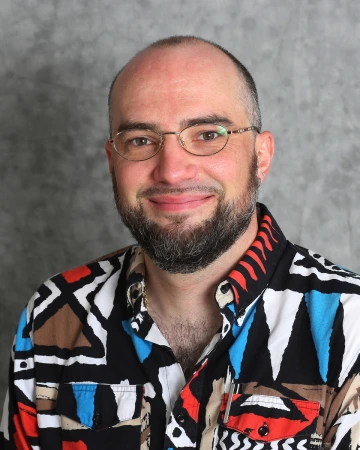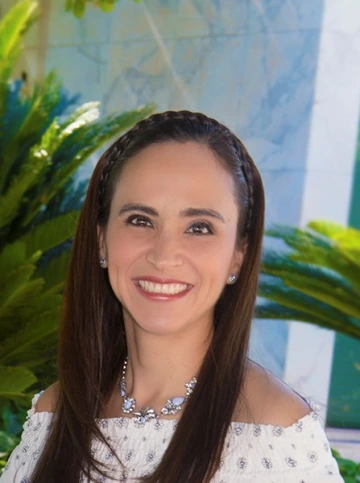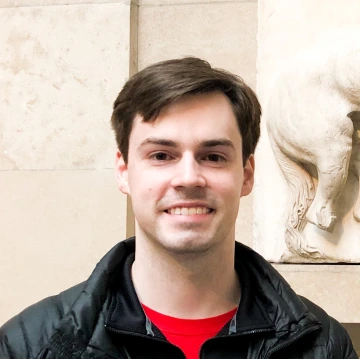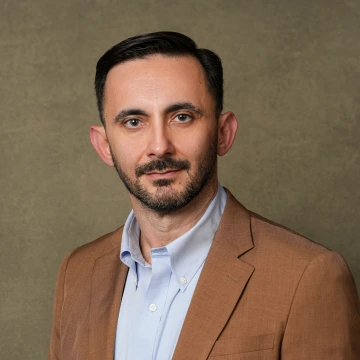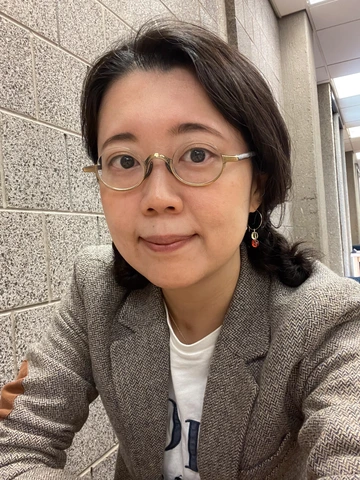Sept. 9, 2025
The inaugural recipients of the College of Humanities GAT Award for Teaching Excellence are Antonia Kampe in the Department of German Studies, Taehyeong Kim in the Department of Spanish & Portuguese, and Yuyu Zhang in the Department of East Asian Studies.
“Graduate students are not only scholars in the making but are vital to the teaching mission of the College of Humanities,” said Chantelle Warner, Associate Dean for Academic and Faculty Affairs. “Their dedication to our students inside and outside of the classroom is foundational for our undergraduate programs, and we are grateful to the generosity of the donors who have enabled us to recognize these efforts in new ways. These first three graduate student recipients are exemplary instructors and deserve our greatest congratulations.”
The GAT Award for Teaching Excellence is intended to honor College of Humanities Ph.D. students early in their studies who have demonstrated outstanding promise in teaching and who have demonstrated a committed and sustained effort to ensure the quality of the students’ learning experience. One award is given for each Ph.D. program in the College. Recipients of this award will receive $2,000.
College of Humanities supporters Barbara Starrett, M.D. and Jo Ann Ellison said they are honored to have the opportunity to fund this award for such deserving recipients.
Kampe is a doctoral student in the binational Transcultural German Studies Ph.D. program at the University of Arizona and Leipzig University. She received her Bachelor of Arts degree in German and English Studies at Friedrich Schiller University Jena and her Master's degree in German Studies at Leipzig University. Her research focuses on contemporary German literature, including topics like identity, migration, memory, and Heimat. She is regarded as an inspiring and caring peer mentor to the graduate students in the department, creating a collaborative and welcoming environment.
She began teaching German language classes at the U of A in the fall semester in 2023 and since, has continually grown as an instructor, earning trust throughout the department, wrote Thomas Fuhr, lecturer of German Studies, in nominating Kampe for the award.
“From the first class that she taught, a beginners German language class, it became apparent that Ms. Kampe has a gift of sparking enthusiasm in her students,” Fuhr said. “Her students are consistently overrepresented in our weekly boardgame event and in monthly German Club meetings; they often go on to become minors and majors, and participate in our study-abroad program.”
Kim is a third-year Ph.D. student in Hispanic Linguistics, also pursuing a Ph.D. minor in Second Language Acquisition and Teaching. He received a Bachelor of Social Science and a Bachelor of Arts in Spanish from Hankuk University of Foreign Studies and holds a Master of Arts in Hispanic Language and Literature from Seoul National University. His primary research interests in Hispanic Linguistics revolve around Spanish phonology and phonetics, in particular, syllable structure, OCP, phonological processing, syntax-phonology interface, and multilingualism.
Kim has made a significant impact as an instructor of both in-person and online Spanish courses, said Cassidy Reis, Lecturer of Spanish and Interim Director of the Spanish Language Program.
“As an adult learner of other languages, Taehyeong Kim prioritizes cultivating a supportive learning environment, or ‘Judgement-Free Zone,’ for his students and encourages them to embrace making mistakes as a natural part of the learning process, especially the process of learning a new language,” Reis said. “Invested in applying research-based, student-centered methods in his classroom, Kim enjoys teaching language with engaging games and activities that are based on, for instance, studies on the effectiveness of multisensory vocabulary learning.”
Zhang is currently a Ph.D. student majoring in Chinese Buddhism. She received a master’s degree in Law from Shanghai University and a master’s degree in Asian Studies from UC Santa Barbara. She was a lecturer for twelve years, teaching Chinese Administrative Law. Her current research interest is Chan Buddhism in medieval China.
At the U of A, Zhang has served as a GAT in courses including Zen Buddhism (EAS/RELI 222) and Worlds of Buddhism (EAS 160 A1). She has developed as an instructor to provide detailed individualized feedback for students, and also effectively shared her specific research interest with students, wrote Alison Jameson, Associate Professor of Practice, in nominating Zhang for the award.
“From an instructor perspective, I cannot emphasize enough Yuyu’s lively interest in both the course material and her students,” Jameson said. “She is almost infectiously enthusiastic about her role, which was obvious to students in her detailed, helpful feedback. Her feedback was the most careful and extensive I have ever seen from a GAT, with the consistently short turnaround time so vital in 7-week courses.”
